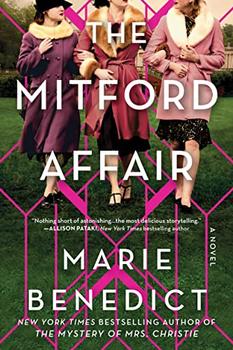Book Club Discussion Questions
In a book club? Subscribe to our Book Club Newsletter!
For supplemental discussion material see our Beyond the Book article, Fascism in Pre-War England and our BookBrowse Review of The Mitford Affair.
Please be aware that this discussion guide will contain spoilers!
- Before reading The Mitford Affair, were you familiar with the famous (or infamous, depending on your perspective) Mitford sisters? If so, how has your understanding of these eccentric, beautiful, aristocratic sisters changed, if at all?
- Nancy is concerned that Diana is considering divorce, particularly because her new partner will not be leaving his own marriage. Why is Nancy so concerned? What is behind Diana's decision?
- Unity thinks that the only thing that distinguishes her from her sisters is her awkwardness. What are her strengths? Why don't others notice them?
- Nicknames abound among the Mitford sisters. What purposes do these names serve?
- What was the appeal of fascist rhetoric for people in Britain, and people like Diana and Unity in particular? What promises did the BUF make? Had they attained power, would they have been able to keep those promises?
- Diana and Unity are reprimanded for attending the Nuremberg rally wearing bright lipstick. How were German beauty standards shaped by fascist ideas? What social issues are reflected in our modern beauty trends?
- How do Nancy's concerns about privacy, reputation, and loyalty affect her conversations with her sisters? What finally goads her into taking a more active role against their dangerous beliefs?
- While waiting to hear if she'll see Hitler during her time in Berlin, Diana has a moment of self-reflection and doubt that startles her. How do you think the events of the book would be different if she questioned herself more?
- On a couple of occasions, as she tries to make sense of her sisters' decisions against the complicated, incendiary developments happening across Europe, Nancy observes that political decisions are often based on personal motivations. What do you think this means in the context of Diana and Unity? Do you think that observation applies in modern times?
- Though Nancy is clever enough to understand the danger of the radio station documents, her loyalty to Diana wins out for a long time. How does that compare to Diana's treatment of Unity?
- Nancy asks herself, "Does [a single motivation] matter as long as we think we are acting on the side of right and truth? Or must we be on the actual side of right?" How would you answer those questions?
- the final chapter, Nancy suggests that she may have misapprehended her sisters' actions and the reasons underpinning them. Did this make you reassess the chapters attributed to Diana and Unity throughout the book? Is it possible that those accounts do not reflect what actually transpired (in the fictional world of The Mitford Affair) but Nancy's presumptions and projections about her sisters' activities based on her own, very personal beliefs?
Download reading guide, including author Q&A
Unless otherwise stated, this discussion guide is reprinted with the permission of Sourcebooks.
Any page references refer to a USA edition of the book, usually the trade paperback version, and may vary in other editions.
